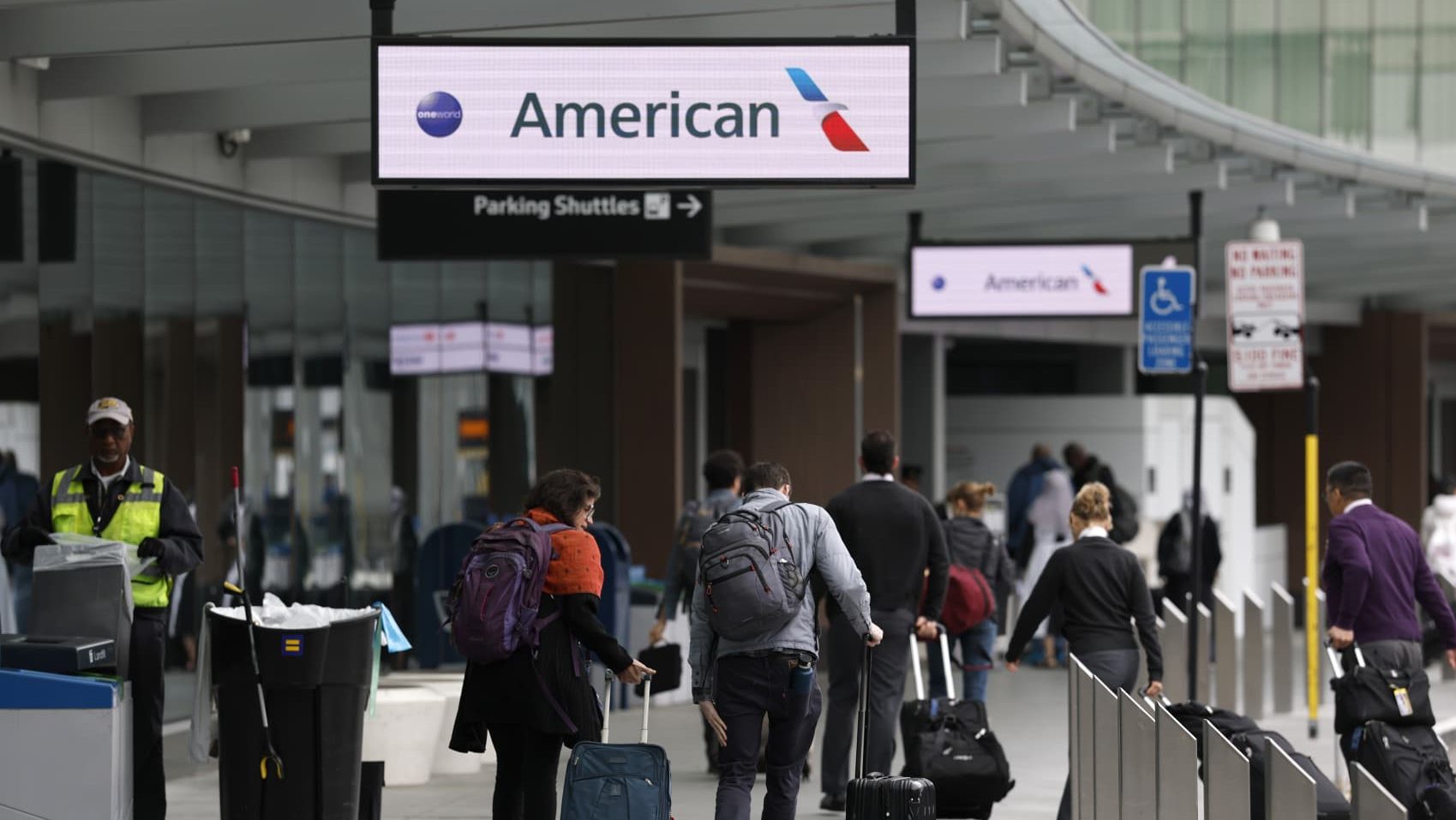Cheaper Plane Tickets: Score HUGE Savings Now!
Score Big! Plane Tickets Getting Cheaper: Here's Why
Introduction: Catching a Break on Airfare?
Remember the days when finding a decent plane ticket felt like winning the lottery? Well, hold onto your hats (and tray tables!) because the winds might be shifting in our favor. Airlines are facing a bit of turbulence, not in the air, but in their bottom lines. And that, my friends, could mean sweet savings for us travelers. So, buckle up as we dive into why plane tickets are getting cheaper, and how you can snag the best deals.
The Downturn in Demand: Empty Seats and Empty Pockets
Airline CEOs, the big bosses of the aviation world, aren't exactly whistling happy tunes these days. They've been telling Wall Street that passenger demand for domestic trips isn't quite taking off as expected. They had high hopes for 2025, but the numbers aren't exactly soaring. It's like planning a party and nobody RSVPs – you're left with a lot of snacks (or in this case, seats) going to waste. This slowdown is a key driver behind the dropping prices.
Economic Uncertainty: The Elephant in the Boarding Area
Why the change of heart in travel plans? Well, a few culprits are at play. President Trump’s trade policies, shaky financial markets, and general economic uncertainty are all contributing factors. Think of it this way: when the future is foggy, people tend to hold onto their wallets a little tighter. As American Airlines CEO Robert Isom put it, "Nobody really relishes uncertainty when they're talking about what they could do on a vacation and spend hard-earned dollars." Who wants to blow their savings when they're not sure what tomorrow brings?
Off-Peak Sales and Capacity Cuts: Airlines Fighting Back
What are airlines doing to combat the slowdown?
The airlines aren't just sitting around twiddling their thumbs. They're actively trying to lure passengers back on board. One tactic? Major carriers are turning to off-peak fare sales, offering tempting discounts on flights during less popular travel times. Think mid-week flights, or those red-eye specials. Another strategy involves cutting excess capacity in the second half of the year. Basically, they're reducing the number of seats available to better match the current level of demand. It’s like a restaurant scaling back its menu when business is slow.
Inflation Relief: A Breath of Fresh Air (and Cheaper Flights)
There's also good news on the inflation front. Airfare actually dropped in March, according to the latest inflation reports. This offers some relief for consumers and could signal a broader trend of more affordable travel. It’s like getting a small refund on your taxes – a welcome surprise that lightens the financial load. So, keep your eyes peeled for those inflation-adjusted fares.
Is a Recession Brewing in Row 33? A Word of Caution
The big question everyone’s asking: Does this dip in demand mean we’re heading for a recession? It’s hard to say for sure. But it’s definitely a sign that people are becoming more cautious with their spending. It's like a barometer – airline ticket sales can reflect broader economic sentiment. So, while cheaper flights are great, they might also be a signal of tougher times ahead.
Delta and Southwest: Feeling the Pinch
Airlines are clearly feeling the effects. Delta Air Lines, Southwest, and others are likely re-evaluating their strategies in light of the decreased demand. More details regarding other airlines will follow as they release earnings and future strategies for the coming year.
How to Snag the Best Deals: Your Flight-Finding Toolkit
Tips for getting the lowest possible airfare
Okay, enough doom and gloom! Let's focus on the positive: cheaper flights for you! Here are a few strategies to maximize your savings:
- Be Flexible with Dates: Flying mid-week (Tuesday, Wednesday, Thursday) is often cheaper than flying on weekends.
- Consider Off-Peak Seasons: Avoid peak travel times like holidays and summer vacation. Think spring or fall for better deals.
- Use Flight Comparison Websites: Sites like Google Flights, Kayak, and Skyscanner can help you compare prices across different airlines.
- Set Fare Alerts: Track prices for your desired routes and get notified when fares drop.
- Be Open to Connecting Flights: Direct flights are convenient, but connecting flights are often cheaper.
- Consider Budget Airlines: Frontier, Spirit, and other budget airlines can offer rock-bottom fares, but be aware of extra fees.
The Rise of Budget Airlines: A Double-Edged Sword
Speaking of budget airlines, they’re playing an increasingly important role in the air travel market. While they offer incredibly low base fares, it’s crucial to factor in all the extras – baggage fees, seat selection charges, and even snacks can add up quickly. It’s like buying a stripped-down car – the sticker price is attractive, but you might end up paying more for the features you actually want.
The Impact on International Travel: Will the Trend Spread?
While the current focus is on domestic travel, the weakening demand could eventually spill over into international routes. Keep an eye on fares to popular international destinations – you might just find some unexpected bargains. It’s like dominoes – one market’s downturn can trigger a chain reaction in others.
Airline Loyalty Programs: Are They Still Worth It?
Airline loyalty programs can be a great way to earn rewards and save money on future flights. But are they still worth it in this changing landscape? It depends on your travel habits. If you fly frequently with a particular airline, a loyalty program can definitely pay off. But if you're an occasional traveler, you might be better off focusing on finding the cheapest fares, regardless of airline.
The Future of Air Travel: More Turbulence Ahead?
Predicting the future of airplane travel
What does the future hold for air travel? It’s hard to say for sure. But one thing’s clear: the industry is facing some significant challenges. Economic uncertainty, fluctuating fuel prices, and changing consumer preferences are all factors that could impact airfares in the years to come. It’s like trying to navigate a stormy sea – the conditions are constantly changing, and you need to be prepared for anything.
Fuel Prices and Airfares: A Tight Connection
Don't forget about the price of jet fuel. It's a major expense for airlines, and when fuel prices go up, airfares usually follow suit. Keep an eye on global oil prices – they can provide valuable clues about future airfare trends. It’s like a seesaw – when fuel prices go up, your ticket price might go up too.
Hidden Fees and Charges: Watch Out for the Fine Print
Airlines are notorious for adding hidden fees and charges to your ticket price. Be sure to read the fine print carefully and understand what you're paying for. Baggage fees, seat selection charges, and even booking fees can quickly add up, turning a seemingly cheap flight into a costly one. It’s like reading a contract – always pay attention to the details to avoid any nasty surprises.
The Travel Agent Advantage: Expert Help in Navigating Deals
While online booking is convenient, don't underestimate the value of a good travel agent. They can often find deals that you wouldn't be able to find on your own, and they can provide expert advice on travel planning. It’s like having a personal shopper for your vacation – they can help you find the best deals and avoid common pitfalls.
Conclusion: Time to Take Flight (on a Budget)!
So, there you have it. Plane tickets are getting cheaper, at least for now, thanks to weakening domestic travel demand, economic uncertainty, and airline strategies to lure passengers back. Remember to be flexible, use flight comparison websites, and watch out for those hidden fees. With a little bit of planning and savvy, you can snag some fantastic deals and take to the skies without breaking the bank. Bon voyage!
Frequently Asked Questions (FAQ)
- Why are airlines lowering prices on domestic flights?
Airlines are facing lower-than-expected demand for domestic travel due to economic uncertainty and other factors. To fill empty seats, they're offering off-peak sales and cutting capacity, leading to lower fares.
- What is the best time to book a flight for the cheapest price?
Generally, booking several weeks or months in advance, and being flexible with your travel dates (flying mid-week or during off-peak seasons), can help you find the best deals.
- Are budget airlines really cheaper than traditional airlines?
Budget airlines often have lower base fares, but you need to factor in extra fees for baggage, seat selection, and other amenities. Compare the total cost, including all fees, before making a decision.
- How can I stay updated on the latest flight deals?
Sign up for fare alerts on flight comparison websites like Google Flights or Kayak. You can also follow airlines on social media for special promotions.
- Is it better to book directly with the airline or through a third-party website?
It's often recommended to compare prices on third-party websites and then check the airline's website directly. Sometimes, booking directly with the airline can offer better cancellation policies or loyalty program benefits.


